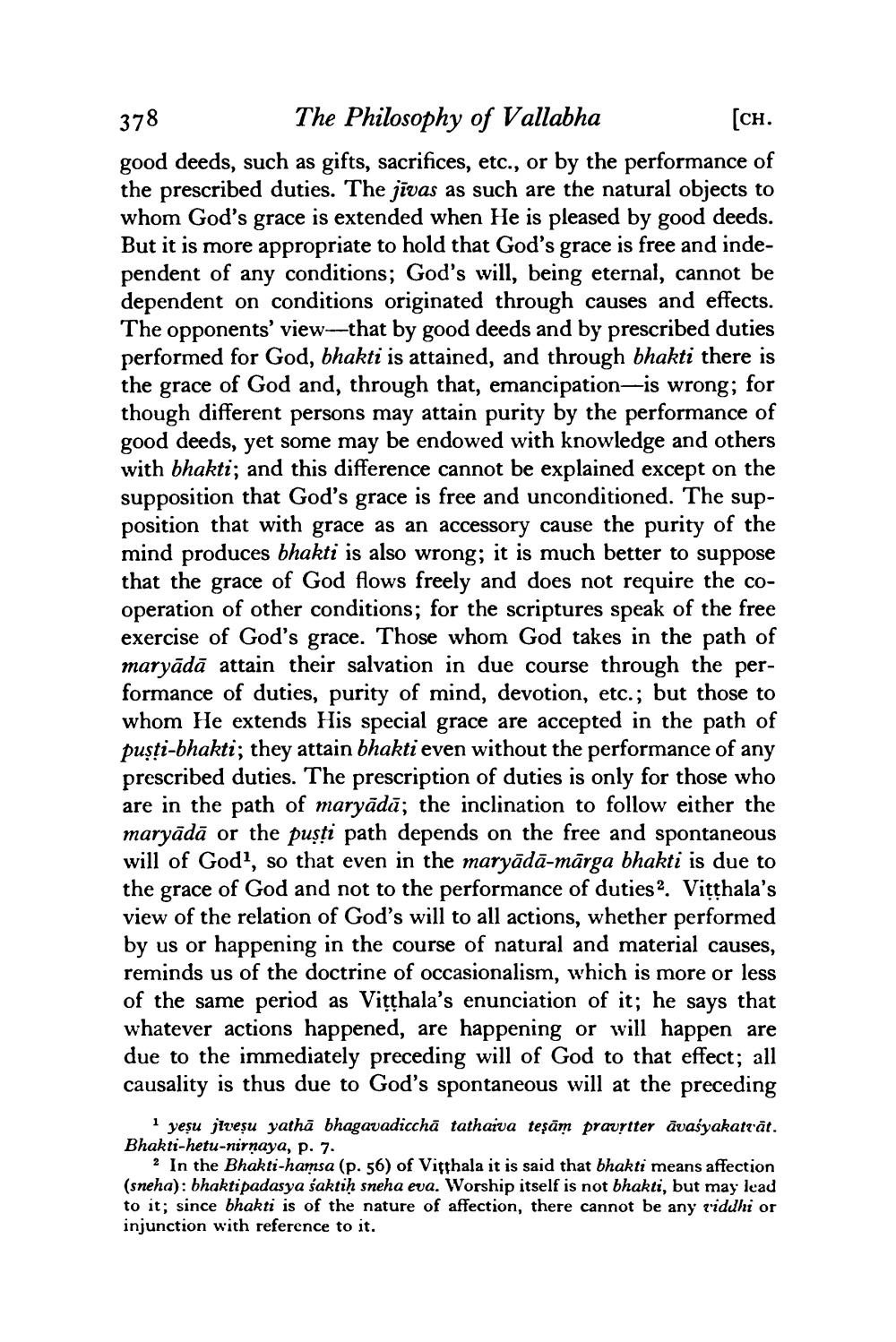________________
378
The Philosophy of Vallabha
(CH. good deeds, such as gifts, sacrifices, etc., or by the performance of the prescribed duties. The jīvas as such are the natural objects to whom God's grace is extended when He is pleased by good deeds. But it is more appropriate to hold that God's grace is free and independent of any conditions; God's will, being eternal, cannot be dependent on conditions originated through causes and effects. The opponents' view—that by good deeds and by prescribed duties performed for God, bhakti is attained, and through bhakti there is the grace of God and, through that, emancipation-is wrong; for though different persons may attain purity by the performance of good deeds, yet some may be endowed with knowledge and others with bhakti; and this difference cannot be explained except on the supposition that God's grace is free and unconditioned. The supposition that with grace as an accessory cause the purity of the mind produces bhakti is also wrong; it is much better to suppose that the grace of God flows freely and does not require the cooperation of other conditions; for the scriptures speak of the free exercise of God's grace. Those whom God takes in the path of maryādā attain their salvation in due course through the performance of duties, purity of mind, devotion, etc.; but those to whom He extends His special grace are accepted in the path of puști-bhakti; they attain bhakti even without the performance of any prescribed duties. The prescription of duties is only for those who are in the path of maryādā; the inclination to follow either the maryādā or the pusti path depends on the free and spontaneous will of God', so that even in the maryādā-mārga bhakti is due to the grace of God and not to the performance of duties 2. Vitthala's view of the relation of God's will to all actions, whether performed by us or happening in the course of natural and material causes, reminds us of the doctrine of occasionalism, which is more or less of the same period as Vithala's enunciation of it; he says that whatever actions happened, are happening or will happen are due to the immediately preceding will of God to that effect; all causality is thus due to God's spontaneous will at the preceding
1 yeșu jiveșu yathā bhagavadicchā tathaiva teşām pravstter āvasyakatrāt. Bhakti-hetu-nirnaya, p. 7.
2 In the Bhakti-hamsa (p. 56) of Vitthala it is said that bhakti means affection (sneha): bhaktipadasya saktih sneha eva. Worship itself is not bhakti, but may lead to it; since bhakti is of the nature of affection, there cannot be any riddhi or injunction with reference to it.




